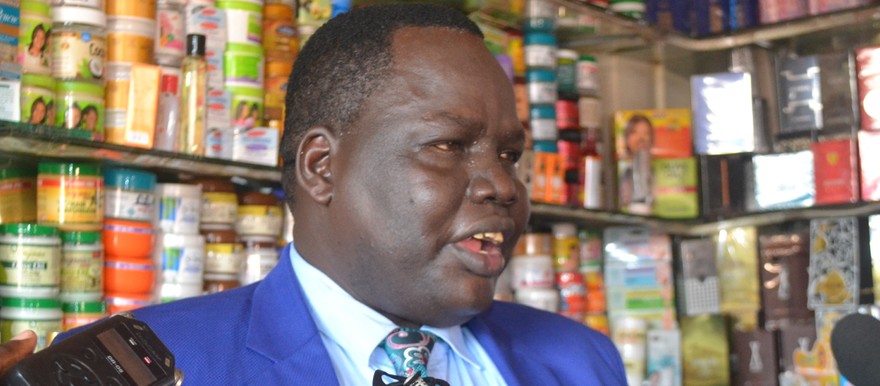South Sudan’s government on Thursday sent officials to enforce its ban on dangerous skin lightening products in the capital Juba.
The youngest nation has recently launched a campaign against skin bleaching cosmetics, particularly products that include hydroquinone and mercury.
Peter Adwok, the Director of Food and Drug Authority, said they launched a crackdown on the sale of banned skin lightening creams.
“Operations are being conducted against dangerous creams,” he said. “We have already started to enforce the decision we took in February.”
“All the products that are dangerous are banned,” he stressed.
Adwok noted that his department had given cosmetics dealers six months to remove the products from their shelves.” Vendors will not be allowed to sale banned lightening creams from today, and this will continue for two months to clear the market,” he said.
He pointed out that law enforcement agencies will seize banned skin bleaching products across the country.
Saeed Zachariah, a cosmetics dealer, said they would respect the ban which was announced early this year by the government.
“What we want from the authorities is to guide us on the different types of skin lightening products that have been banned for containing dangerous chemicals,” he said.
Monica, a woman living in the capital Juba, said she is happy because the government has begun enforcing a ban on dangerous cosmetics products.
She further said skin bleaching products imperil the lives of women across the country. “It is a good decision to ban skin lightening products because they are dangerous,” she said.
Many ladies like Suzanna Yusuf – who lives in Juba say they should be free to choose for themselves.
Yusuf has raised fears that consumers will buy unregulated creams, adding that some of the banned products will be smuggled into the country.
“I completely reject the decision and I think the decision is not good,” she said.
Skin bleaching is a multibillion-dollar global industry. At least four out of every 10 women in Africa bleach their skin, according to the World Health Organisation.




